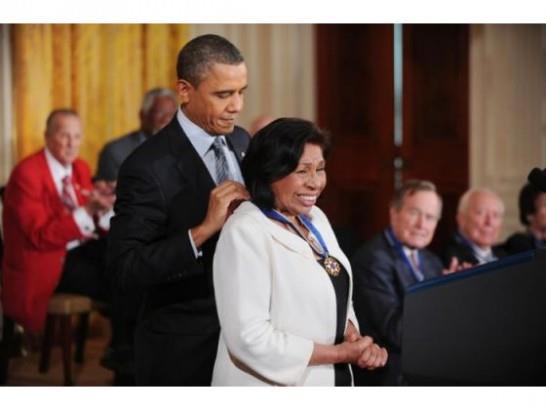- Council of the Great City Schools
- Civil Rights Activist Commemorates 75th Anniversary of Lawsuit Ending School Segregation
Urban Educator - May 2022
Page Navigation
- CNN Chief Medical Correspondent Sanjay Gupta to Speak at Fall Conference
- Dallas Names Lone Finalist, New Leaders Named in Pinellas and Washoe
- L.A. Unveils Nation’s Largest School-based Air Quality Monitoring Network
- St. Louis School District Joins Citywide Effort to Launch Gun Safety Program
- ‘Best High Schools’ in the Nation Ranked
- Minneapolis High School Class of 2020 Receives $1 Million in Scholarship Funds
- Council Names New Director of Management Services, Chief Academic Officer Retires
- Civil Rights Activist Commemorates 75th Anniversary of Lawsuit Ending School Segregation
- First Candidates in Charleston Program to Recruit Male Teachers of Color Now in Classrooms
- Big-City Schools Win Green Ribbon Awards
- ACT Honors Urban Schools for Helping Students Pursue Postsecondary Success
Civil Rights Activist Commemorates 75th Anniversary of Lawsuit Ending School Segregation
-
Sylvia Mendez was 9 years old in 1945 when her parents and four other Mexican-American families sued four local school districts in Orange County, Calif., over school segregation as part of a class action lawsuit. The case of Mendez v. Westminster struck down the legal justification for school segregation in California and paved the way for the landmark Brown v. Board of Education of Topeka.
In April, Mendez visited Gonzalo Felicitas Mendez Fundamental Intermediate School in California’s Santa Ana Unified School District to mark the 75th anniversary of the ruling in the case. During her visit to the school, which was named after her parents in 2000, she talked to students about the role her parents played in ending school segregation.
Making History
Felicitas and Gonzalo Mendez moved to Westminster, Calif., in the early 1940s and sought to enroll Sylvia and her two brothers at the nearby 17th Street School. But the school only accepted white students and when the Mendez children went to register, they were denied entry and told to go to another school designated for Mexican students.

Sylvia’s parents joined with four other Mexican-American families and filed a lawsuit against Westminster and three other Orange County school districts over school segregation. Their lawyer argued that segregating students based on their nationality violated the 14th Amendment of the U.S. Constitution and introduced evidence that school segregation was damaging to minority students. In 1946, the families won the case with the judge ordering local school districts to cease “discriminatory practices against the pupils of Mexican descent in the public schools.”
The ruling was upheld in 1947 by the U.S. 9th Circuit Court of Appeals and two months later, California Gov. Earl Warren signed a bill outlawing school segregation across the state.
Civil rights lawyer Thurgood Marshall wrote an amicus brief supporting the Mendez plaintiffs on behalf of the NAACP and used many of the same arguments years later before the U.S. Supreme Court in Brown v. Board of Education, which in 1954 ended school segregation in the country. The opinion in the case was written by the former governor of California, Chief Justice Earl Warren.
Sylvia graduated from the Santa Ana Unified school system, earned nursing degrees, and worked as an assistant nursing director. Since her retirement, she has traveled across the country speaking passionately about the case, appearing before the U.S. Commission on Civil Rights and giving speeches at schools on the importance of a good education. In 2011, she was awarded the Presidential Medal of Freedom by President Barack Obama.
“This is the history of the United States, the history of California,” she told the Los Angeles Times in 2016. “Mendez isn’t just about Mexicans. It’s about everybody coming together. If you start fighting for justice, then people of all ethnicities will become involved.”
During Sylvia’s recent visit to the school named after her parents, students said they were inspired by the civil rights activist and her parent’s efforts to end school segregation in California. “I am proud to go to a school named after the Mendez family because of its significance and the history of it behind here,” said 8th grade student Geraldine.
“I feel inspired that someone who looks like me could make history and have a school named after them,” said 8th grade student Desiree. “I think it’s pretty cool.”
Media Contact:
Contact Name
Contact@email.com
(000) 000-0000
Contact Name
Contact@email.com
(000) 000-0000
Contact Name
Contact@email.com
(000) 000-0000
Media Contact:
Contact Name
Contact@email.com
(000) 000-0000
Contact Name
Contact@email.com
(000) 000-0000
Contact Name
Contact@email.com
(000) 000-0000


